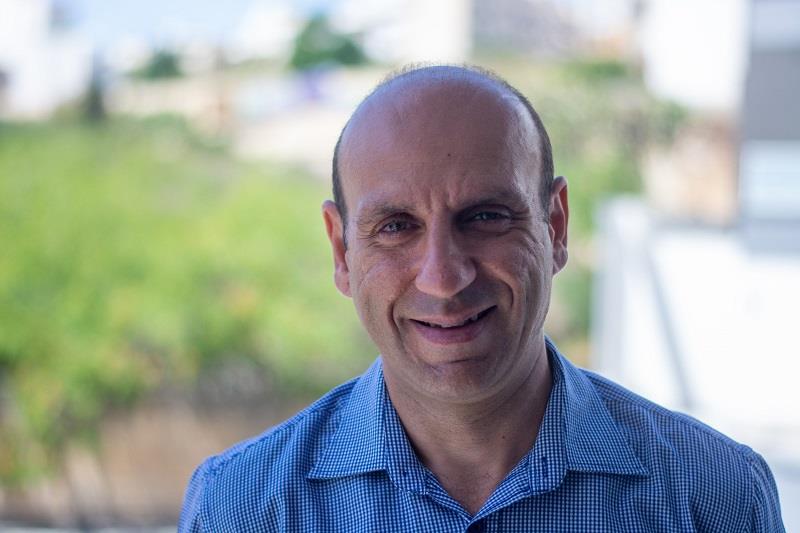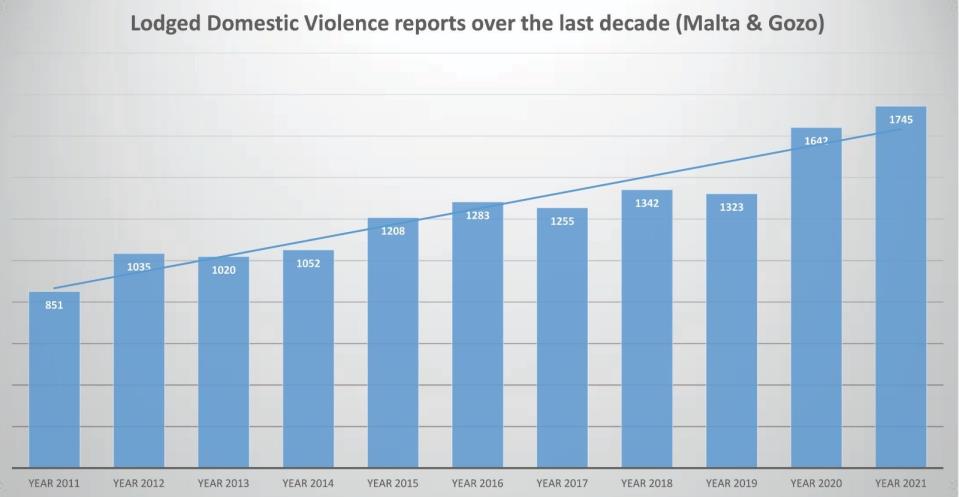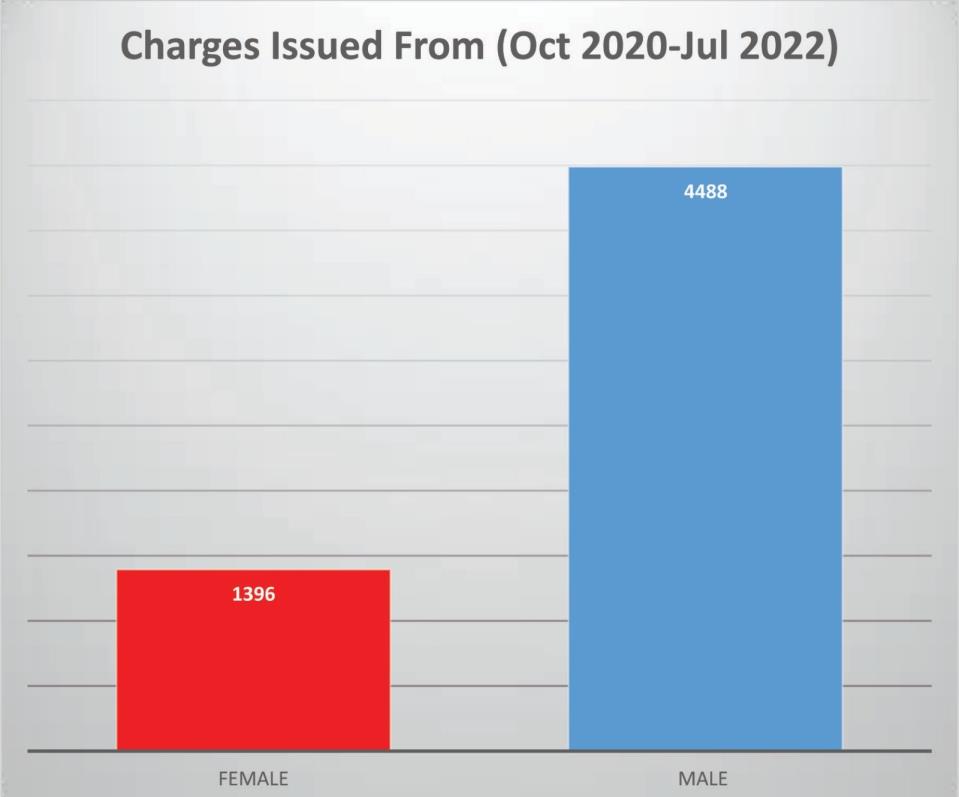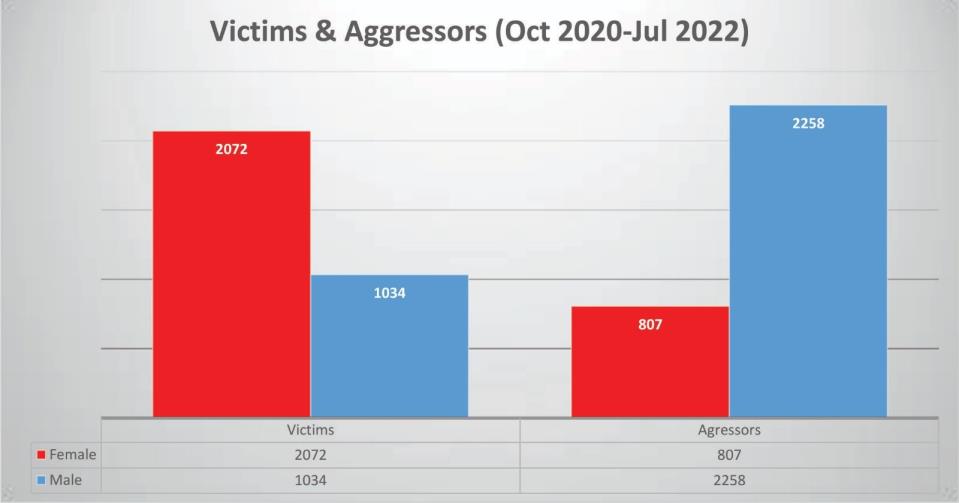The number of reports of domestic violence received by the Police has doubled in a decade, up from the 851 received in 2011 to 1,745 in 2021, statistics obtained by The Malta Independent on Sunday from the Police show.
The surge in the number of cases was seen mostly in the last two full years, mostly as a result of the Covid-19 pandemic which saw restrictions on outdoor activities that kept people at home more than in previous times.
In the previous years, the number of cases did not increase every year and, when it did, it happened only twice that the increase was of more than 150 (see table on page 8). But, when the Covid-19 pandemic started, cases shot up from 1,323 in 2019 to 1,642 in 2020, and went up even further to 1,745 in 2021.
This rise spurred the setting up of the Police Domestic Violence Unit in October 2020. Since then, the Police have filed 6,000 charges, most of them against men, the statistics show.
Interviewed by The Malta Independent on Sunday, Police Superintendent Johann Joseph Fenech, who is responsible for the Unit, acknowledged that the Covid-19 pandemic has led to more reports of domestic violence being filed.
Some people were imprisoned in their own home, he said, at a time when there were restrictions in place.
The level of stress increase in those months, he said. “If there is a certain type of grudge between family members, the fact that you are locked in a house together will allow for arguments to arise,” he said.

What is considered as domestic violence?
He explained that domestic violence is a very vast crime which captures physical, emotional and mental abuse. He added that some forms of abuse can transform into others.
Child-neglect is also a form of domestic violence “as (parents) would be lacking from doing what (they’re) supposed to do under the law”, such as not giving financial maintenance as per court decree to your ex-partner.
The superintendent said that for a case to be considered as domestic violence the relationship between perpetrator and victim has to be a close one, regardless of whether they live under the same roof or not. Such relationships can vary from family relationships to couples and even ex-partners who might have spent a long time dating.
For example, the Unit has had to deal with a case involving foreign workers living together who ended up fighting. That was a case of domestic violence too, and legal steps were taken.

Changes brought about by the setting up of the DV Unit
Fenech said that although the majority of victims remain women and the perpetrators men “there was a spike, although not exaggerated, in the number of men reporting, especially since the setting up of the DV Unit”.
The DV Unit was set up in October of 2020 after the Police department thought there was a need for a specialised area.
The superintendent said that the fact that there are specialised people working in the department makes it easier for a victim to feel comfortable in reporting, as apart from being provided training on domestic violence laws, the Police are also given soft skills training.
Officers interested to join the Unit would need to attend specific courses. However, basic courses are given to every police officer in the department as although victims tend to go themselves at the domestic violence unit, some opt to go to the nearest police station.
“Local police stations are not the ideal place where one should do these kinds of reports because one has to keep in mind that these (DV reports) are very sensitive,” he said.
The domestic violence unit offers more privacy and the matter can be dealt with better. For example, there is a play area for children, just in case the victim goes to the police with the children. Fenech said that this particular room helped to facilitate the level of comfort offered to victims.
“The playroom helped, cause if you find the courage to go and file a report at the DV Unit and you have no place where you can leave your child, there we have a room on purpose where children can stay there playing with a Playstation or reading a book until the report is concluded,” he said.

Process of filing a DV case and the aftermath
Fenech explained that when a report is filed, the victim is offered an optional risk assessment done by Appogg workers in a designated room.
He said that by having all these resources available “the victim has to go nowhere as they are served from every aspect in one building”.
The DVU is open 24 hours a day and an effort is made to ensure there are always a male and a female police officer present at the Unit.
Fenech said that unfortunately “there has been an increase in the types of all DV cases”, with there being a spike in cases where there are slight injuries, insults and threats.
“You have to remember that even a small argument can be considered as DV. We have had arguments because the food was cold,” he said.
Fenech said that once a DV report is filed, the Police are obliged by law to take legal steps, as they do not have the authority to drop a case.
He added that when the victim wants to drop the case they can try to do so in court, but whether this happens is at the discretion of the magistrate and the level of seriousness of the case.
Asked what are the most difficult of cases to prove, he said those that involve children. Many of them end up acting as witnesses in cases concerning the adults they live with.
The superintendent said that they have cases where children as young as seven or eight have to testify in court, with many of them still unable to express themselves properly. Depending on the case, for obvious reasons, children are allowed to testify via video conference and not in open court.

Children adolescents and the court system
The DVU has had cases where children as young as 10 would have done the offence themselves and been reported by their alleged victim.
Fenech said that they have had cases where the child hit the mother or insulted the father, however they cannot do anything by law as he further explained that no legal action can be taken against children under 14 years of age.
When the alleged perpetrator is between the age of 14-16 it needs to be proven that there was intentional malice, “meaning that they knew that they were doing a wrongful act yet they still decided to go ahead with it”. From 16-18 onwards, the alleged perpetrator becomes liable and is tried in juvenile court.
Children are often used as weapons by adults in their fight over child support or other matters. “You should not use your children as tools for your case,” he said.
Asked how they would know that children are being used, he said that "we have been doing this job for quite some time and through experience we would know that they are using their children to their advantage".
Safety of the alleged victim
Fenech explained that the first thing that the Police does when an alleged victim files a report is to ensure they are safe, together with their children, if they have any. This means that regardless of whether the victim wants a risk assessment done by Appogg or not, the DVU is always going to ensure their safety.
Apart from that, even if the risk assessment might result as a low risk, but the Police feels that it is more serious, they are still going to intervene.
If the officers decide to arrest the victim, they ask the victim whether they have a place where they can shelter, where if not the police will use their contacts to provide a temporary accommodation.
Depending on the severity of the case some alleged perpetrators might be given police bail.
“We might have gone to arrest them, but when we talk to them we might realise that the case is not as serious as it first appeared to be, thus we grant him bail until we get more information and evidence,” he said.
He said that despite efforts by the Police not to allow the alleged aggressor and the victim under the same roof “in some cases the victim still tells us that they want to go back home as they have small children and they love their partner”.
However when the case is very serious “the victim will not go home”, he said.
Asked to define what is meant by serious, he said that such cases might involve the use of firearms, serious injuries or there might be fear of violence or continuous harassment.
“In the case that a person has been arrested and we are going to bring him to court under arrest because the case is a serious one, this is done within 48 hours and then it is the court which decides whether the person should be given bail or not. This is all done on that same day,” he said.
In all cases of emergency the 112 number is to be dialled immediately, while for non-emergency circumstances, a report is to be lodged by physically reporting at the Domestic Violence Unit in Floriana.
Any information and queries including the pre-reporting phase can also be carried via the GBDV section by phoning on 2294 2717 / 2294 2777